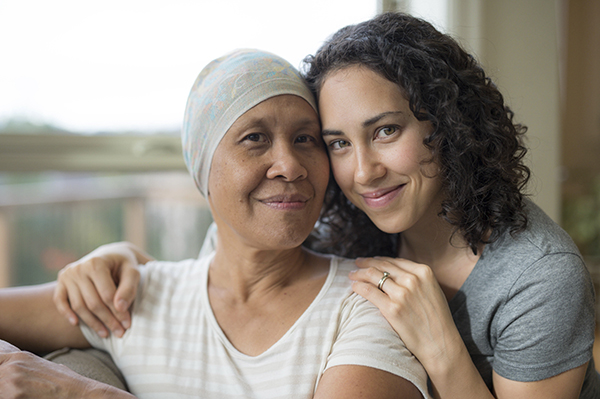
Coping with Dementia Tip: Laugh Your Cares Away! Caring for a person you love who is coping with dementia is certainly nothing to laugh about. Yet research is increasingly pointing towards the benefits of humor, and incorporating it into dementia care could possibly be exactly what the doctor ordered to improve total well-being for your loved one. For example, an Australian research study recently reported that humor therapy can lessen agitation in people who have dementia as thoroughly as antipsychotic medications, with no unintended side effects. Shared laughter connects us, and helps those diagnosed with cognitive difficulties to feel accepted, safe, and at ease. As stated by Lori La Bey, founder of Alzheimer’s Speaks, “When anyone is sick or having a hard time, they still like to laugh. I spend a lot of time teaching people that feelings don’t go away, and it’s okay to get back to that zone.” Laughter also produces endorphins, which inhibit stress hormones, and may even improve blood pressure levels and minimize pain for…

What You Need to Know as Your Loved One’s Senior Care Advocate Of all of the many responsibilities a family caregiver encounters, perhaps one of the more overwhelming is managing health issues. The National Council on Aging reports that about three quarters of all older adults are diagnosed with at least two chronic diseases, and are seeing on average four healthcare specialists. As your loved one’s senior care advocate, it is very important to know how to communicate effectively with those on the senior’s medical team, and also to come to appointments thoroughly prepared to address any and all issues. The following four questions are a great starting point: Are all of the prescription drugs essential? With most seniors taking many medications, you’ll need to maintain a detailed list and review regularly with the doctor along with the pharmacist, both of whom will be able to ensure there aren’t any duplications prescribed by different specialists, or any contraindications between meds. If prescribing anything new, what side effects might…

Accepting a Chronic Illness Diagnosis Is Not Giving Up In Isaac Asimov’s opinion, “The easiest way to solve a problem is to deny it exists.” It is a common belief for lots of family caregivers when their loved one is diagnosed with a chronic condition, such as dementia. Even though this might instill some level of comfort in assuming that life can go forward as it always has, if only we refuse to acknowledge this new reality, the truth, needless to say, is that acknowledgement is essential to obtaining necessary support. It’s understandable for family members to wish to accomplish everything possible independently to provide the care that a senior needs. Nonetheless, often at the crux of denial are thoughts of guilt, helplessness, and in some cases, incompetence in the ability to “fix things.” But you will find important benefits to be obtained – both for the individual and for his or her family members – by facing the situation head-on, like the chance to savor time together, and to uncover effective ways to take care of…

Windsor-Essex In-Home Care: What We Now Know About Cancer Prevention Each year since 1999, we have achieved a decline in cancer-related deaths, an encouraging trend which is poised to carry on as experts learn more and more about the causes of cancer, cancer prevention and the development of new and better treatment options. Nonetheless, cancer remains one of the leading causes of death in Canada – making it important to continue to push forward with persistence to find a cure. Here is what we have observed up to now: Diet makes a difference. Although a diet abundant in antioxidants can help minimize cell damage (and protect against cancer), a recently available research study showed that in some cases, cancers reap the benefits of a nutrient-rich diet, leading to hastened metastasis. As a result, the advice is to avoid antioxidant supplements except when your physician prescribes them. Get your antioxidants from fruits, veggies, and beans instead, as the added molecules in whole food has an impact. On top of that, a connection is suspected between sugary…

How Seniors with Chronic Health Conditions Are Being Empowered to Take Control On the subject of chronic health conditions, seniors are the experts, hands down, with nearly 3 out of 4 seniors impacted by several conditions that are ongoing, call for long-term medical attention, and put limitations on activities. With the continuous barrage of bloodwork and other exams, doctors’ appointments and procedures, and medications, managing chronic diseases takes both a physical and emotional toll, and may very quickly become daunting. Dr. Mary Tinetti, chief of geriatrics and internist at Yale School of Medicine, said, “Once you get three, four, or five and six diseases, several things happen: Number one, almost guaranteed, trying to get one of these diseases under control is going to make one of the other diseases worse. Number two: The more we ask people to do, the more overwhelmed they get and the less they are likely to do.” For these reasons, Dr. Tinetti has established the Patient Priorities Care approach, with the goal to lessen the burden of treatment by…

Providing Senior Care in the Home for a Loved One? Prevent Injuries with These Tips! Even though the ultimate goal is to increase health and safety for the aging adults they love, family caregivers, unfortunately, typically end up diminishing their own health in the process. The truth is, an incredible 94% of caregivers in a recently available study conducted by Ohio State University documented musculoskeletal pain in more than one part of their body – and 66% revealed that this pain is affecting their quality of life. And know that a “family caregiver” can be anyone in the family who helps out another person with daily activities. At Amy’s Helping Hands, we know firsthand the amount of lifting, bending, and weight-bearing required in satisfying the care needs of a senior loved one, which is why each of our professional caregivers is well-trained in methods that safeguard both themselves as well as the loved one for whom they are providing senior care in the home. Injuries might result from even the most mundane of tasks that require more physical strength than…




















